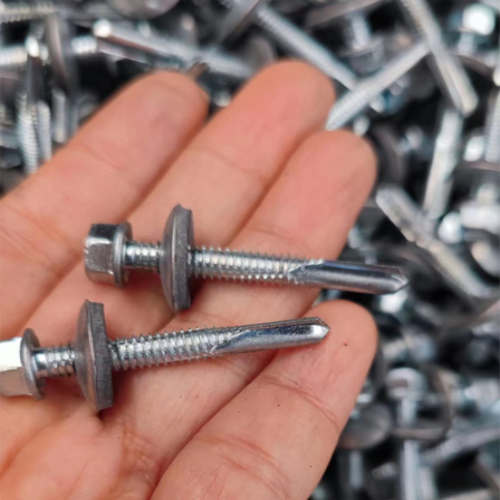crush washer vs flat washer company
Crush Washers vs. Flat Washers Key Differences and Applications
In the realm of mechanical engineering and design, washers play a crucial role in providing support, distributing loads, and preventing leaks. Among these, crush washers and flat washers are two popular types recognized for their specific functionalities and applications. Understanding the distinctions between them is essential for selecting the right component for your project.
Material Composition and Design
Both crush washers and flat washers can be made from various materials, including rubber, metal, and plastics. The choice of material often depends on the environment the washer will be subject to, such as temperature, corrosion potential, and mechanical stress.
- Crush Washers Typically made from softer materials like copper, rubber, or aluminum, crush washers possess a design that allows them to deform when compressed
. This property is vital for creating a tight seal between surfaces, preventing fluid leaks in applications like automotive oil pans and hydraulic systems.- Flat Washers Flat washers, on the other hand, are generally made from stronger materials such as steel or stainless steel. Their primary function is to distribute loads over a larger surface area, reducing the risk of damage to the components they are used with. Flat washers come in various shapes and sizes and are often used in construction, automotive, and machinery applications.
Functionality and Purpose
While both types of washers serve the purpose of providing support and protection, their applications and functionalities differ significantly.
crush washer vs flat washer company

- Crush Washers The unique design of crush washers makes them particularly effective in applications that require a strong seal. When a bolt or screw is tightened, the washer compresses and fills any imperfections in the mating surfaces, ensuring a leak-proof joint. This characteristic is crucial in high-pressure applications such as hydraulic lines, fuel systems, and plumbing where preventing leakage is paramount.
- Flat Washers Flat washers serve a different but equally important purpose. They provide a smooth surface that helps to distribute the load of a fastener over a larger area, thus reducing the risk of damage to the surfaces being joined. They also help in preventing the fastener from loosening due to vibration or fatigue. Flat washers are commonly used in furniture assembly, structural applications, and any scenario where bolting or fastening is necessary.
Installation and Maintenance
The installation differences between crush washers and flat washers also underscore their unique applications
- Crush Washers Installing crush washers typically requires that the bolts or screws be tightened to an appropriate torque to achieve the correct seal. It is crucial to note that once a crush washer is compressed, it cannot be reused. Therefore, during maintenance or repairs, replacing a crush washer with a new one is essential to ensure efficacy.
- Flat Washers In contrast, flat washers can be reused if they are not deformed or damaged. They are uncomplicated to install; simply place the flat washer under the head of the fastener. However, inspectors should check for wear and tear, as a worn flat washer may fail to distribute loads correctly and could lead to mechanical failure.
Conclusion
In summary, understanding the differences between crush washers and flat washers is vital for engineers and designers striving for optimal performance in their projects. Crush washers are ideal for applications that require a leak-proof seal under compression, while flat washers excel in load distribution and preventing damage to surfaces. Selecting the appropriate washer for your specific needs not only ensures the longevity and effectiveness of your assemblies but also enhances safety and functionality across various engineering fields. Whether you're involved in automotive, plumbing, or construction projects, knowing when to use crush washers versus flat washers will ultimately lead to better design and construction outcomes.
-
Top Choices for Plasterboard FixingNewsDec.26,2024
-
The Versatility of Specialty WashersNewsDec.26,2024
-
Secure Your ProjectsNewsDec.26,2024
-
Essential Screws for Chipboard Flooring ProjectsNewsDec.26,2024
-
Choosing the Right Drywall ScrewsNewsDec.26,2024
-
Black Phosphate Screws for Superior PerformanceNewsDec.26,2024
-
The Versatile Choice of Nylon Flat Washers for Your NeedsNewsDec.18,2024










